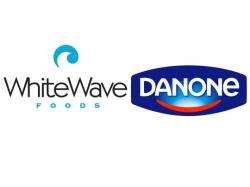Organic Industry Watchdog Asks DoJ And FTC To Block Merger Of Danone And WhiteWave
August 11, 2016 | 2 min to read

Cornucopia, WI – The proposed acquisition of WhiteWave Foods by French dairy giant Groupe Danone is anti-competitive and a threat to the U. S. organic dairy market, according to a complaint filed with the Department of Justice and the Federal Trade Commission by The Cornucopia Institute, an organic industry watchdog group. It has also launched a petition calling for federal regulators to investigate the proposed merger.
Danone (Dannon in the U.S.) owns Activa, Oikos, Dannon and the world’s largest organic yogurt brand, Stonyfield. Its proposed $10 billion purchase of WhiteWave would combine Stonyfield with Wallaby, a rapidly growing organic yogurt label, and with Horizon, the nation’s largest organic milk brand, giving Danone a larger share of the U.S. organic dairy market than a single company has ever controlled.
In its complaint to DoJ and FTC, The Cornucopia Institute argues this “will have a chilling impact on both competition in the consumer marketplace and the wholesale market for organic milk….We have specific concerns that this acquisition would have a serious anti-competitive effect on the organic yogurt and organic fluid milk markets in the U.S.”
“These are important considerations for determining whether this acquisition violates the Sherman Act and the Clayton Act for anti-competitive and anti-trust reasons,” said Marie Burcham, a livestock policy analyst and attorney with The Cornucopia Institute, who signed the complaint letters. “With this acquisition we are concerned that Danone will easily be able to beat out any competition by lowering prices beyond what farmstead dairies, and more moderate size milk processors and marketers, can withstand.”
The market for organic dairy already has less competition than other agricultural sectors and is more susceptible to monopolization. If, after its acquisition, Danone decides to dump Organic Valley, a Horizon competitor, as a supplier, it could leave only one major purchaser of organic farm milk in some regions of the U.S.
“Mergers like this one could eventually reduce options and raise prices for consumers,” said Mark A. Kastel, Cornucopia’s Codirector. “With less competition, big companies commonly underpay independent farmers for their products, undermining the economic viability of small, family-scale farms.”
Source: The Cornucopia Institute
